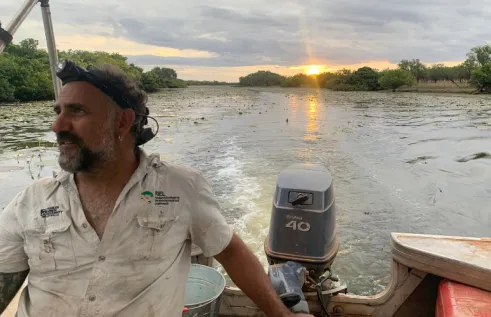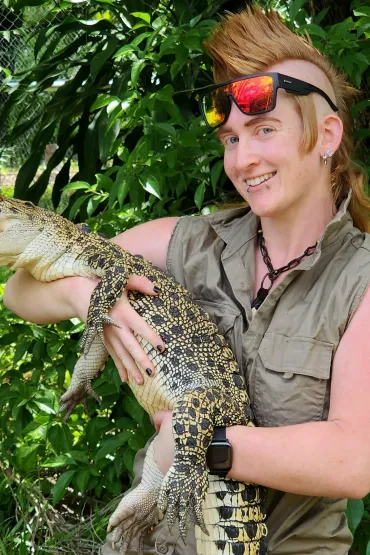RIEL seminar series
Seasonal Change Causes Shifts in Water Loss, but not Preferred Temperatures, of Top End Geckos
| Presenter | Kade Skelton | |
|---|---|---|
| Date/Time |
to
|
|
| Contact person | E: RIEL.outreach@cdu.edu.au | |
| Location | Casuarina campus Yellow 1.1.39 and online | |
| Open to | Public | |
Reptiles lose a significant proportion of body water through the passive process of evaporative water loss (EWL). This can present challenges to survival in arid environments, where dry conditions increase the risk of dehydration. Additionally, adverse environmental temperatures may reduce the ability for a reptile to maintain an ideal body temperature; this can impact activity levels and overall fitness.
EWL rates and preferred body temperatures were measured in dtellas, a group of native nocturnal lizards. These physiological traits were compared across 18 species from Western Australia and the Northern Territory, with considerations of local climate and season. This study investigated whether EWL rates and thermal preferences differed across species, were associated with climate, and could shift to adapt to local conditions.
Kade Skelton moved from Western Australia to the Northern Territory to research crocodiles, first studying predator ecology for their Honours project at Charles Darwin University and then working with the reptiles in farming, tourism, and education. Kade holds a strong interest in the relationship between animals and their environment, leading them to pursue a PhD investigating the ecophysiology of nocturnal reptiles of Australia’s north.
Related Events

Trophic dynamics of free-flowing tropical rivers
Colton Perna's PhD research explores how river flows and flooding shape freshwater fish communities in tropical rivers, using fatty acids to track how hydrology influences food webs and nutritional pathways. His findings highlight the critical importance of river flow and floodplain connectivity in sustaining productive aquatic ecosystems.
Read more about Trophic dynamics of free-flowing tropical rivers
STATE OF THE DIS-UNION: Media Literacy in the age of AI
The CDU Library is hosting a free panel discussion featuring Northern Territory journalists who will discuss media literacy, truth, and storytelling in the AI era. Attendees can learn how AI is transforming media, ask questions, and improve their understanding of navigating information in today's landscape.
Read more about STATE OF THE DIS-UNION: Media Literacy in the age of AI
Why Cross‑Cultural Communication Matters in Indigenous-focused Research
A cross‑cultural research partnership grounded in respect, shared knowledge, and educational equity. Discover how collaboration shaped a transformative PhD journey.
Read more about Why Cross‑Cultural Communication Matters in Indigenous-focused Research
